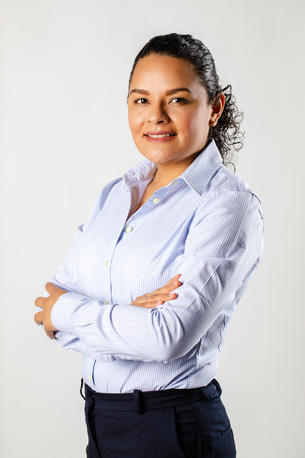Martha Nohemi Acosta Montalvo, PhD candidate in the PhD programme Process, Energy and Automation Engineering at Faculty of Technology, Natural Sciences and Maritime Sciences (TNM), will be defending her thesis for the degree of philosophiae doctor (PhD).
Title of thesis: «Intelligent frequency control for the secure operation of modern power system».

Trial lecture topic: «DC Transmission Systems for Coupling Asynchronously Operateed Power Grids».
Both the trial lecture and the defence will be held in auditorium N-107, campus Porsgrunn and on Zoom.
Summery
The energy industry has been facing several challenges in operating and controlling the power system due to replacing fossil fuel-based power generation sources with renewable energy sources. The power supply variability coming from renewable energy sources produces uncertainty of the power balance. Meanwhile, the reduction of the rotational inertia creates a faster frequency drop after a disturbance occurs, leading to unsafe operation of the power system.
This research aimed to develop frequency control strategies to cope with the reduction of rotational inertia following two approaches, a frequency control strategy based on fast frequency response control and frequency control during emergency conditions considering the under-frequency load shedding scheme.
A statistical assessment of electromechanical variables of the Nordic Power System (time series of frequency, kinetic energy and power demand) unveiled a strong correlation between kinetic energy and power demand during high power consumption hours; concluding that the power demand forecast could be used to create sophisticated prediction models of rotational inertia.
Furthermore, it was demonstrated that the energy storage systems enabled with fast frequency response control can provide frequency support services to the transmission and distribution network and counteract the issues produced by reduced rotational inertia.
Lastly, the proposed optimal UFLS scheme has proved to be an essential frequency control for power systems with low rotational inertia and high power demand levels and highlighted the importance of computing the parameters of each under-frequency relay instead of setting all under-frequency relays with the same set of parameters